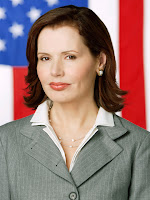The Social Network explains in great detail the series of events surrounding the development of Facebook. Our main character, the boy genius called Mark Zuckerberg (apparently played with spot on accuracy by Jesse Eisenberg), is a socially handicapped Harvard undergraduate who is ironically obsessed with social status.
Much of the story is told through the two law suits that are made against Mark. One is his former best friend, Eduardo Saverin, after Mark deceitfully cheated him out of the company. The other is made by the Winklevoss twins who claim that Mark stole their idea after they approached him about creating a social website especially for Harvard.
I believe that, though subtle, there is a political agenda regarding corporations, business ethics, and privacy.
 Obviously, “social networking” has become a HUGE thing. There are countless websites geared toward social interaction and many sites that existed before the craze have now added a feature that allows you to communicate with your online friends or share information with them. These networks have become a part of life (especially but not specifically for the younger generation) that are in some ways unimaginable to live without. For many, these sites are their main source of interaction with other people. Facebook, Twitter, Tumblr, Google Plus... the list goes on and on.
Obviously, “social networking” has become a HUGE thing. There are countless websites geared toward social interaction and many sites that existed before the craze have now added a feature that allows you to communicate with your online friends or share information with them. These networks have become a part of life (especially but not specifically for the younger generation) that are in some ways unimaginable to live without. For many, these sites are their main source of interaction with other people. Facebook, Twitter, Tumblr, Google Plus... the list goes on and on.
















